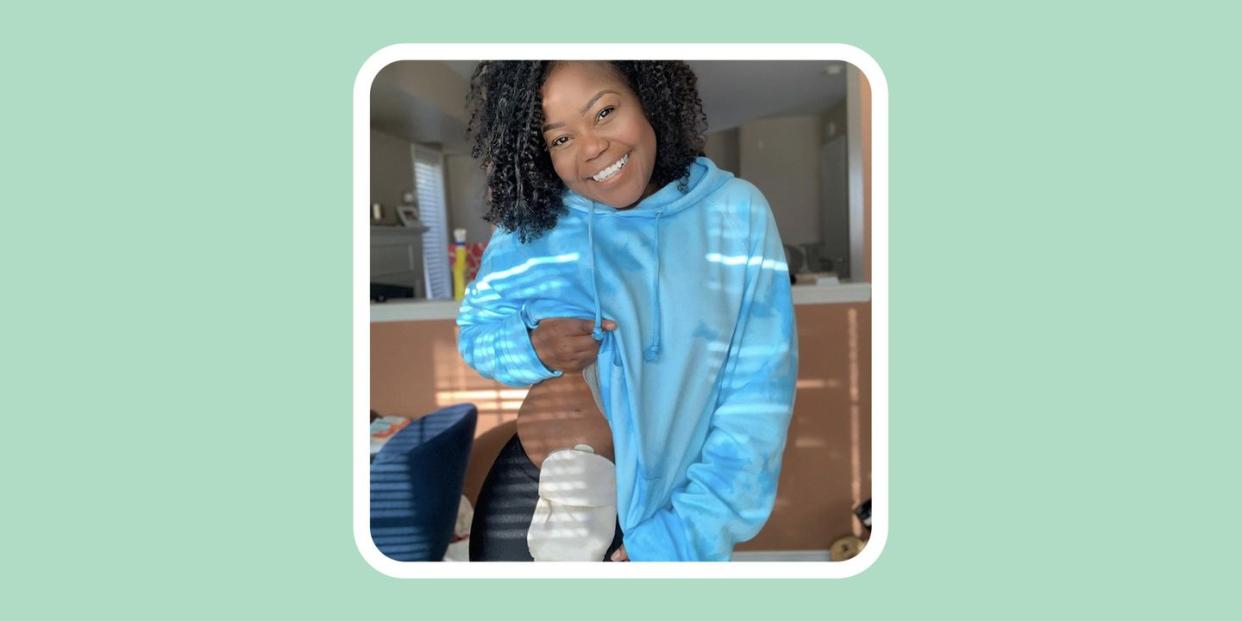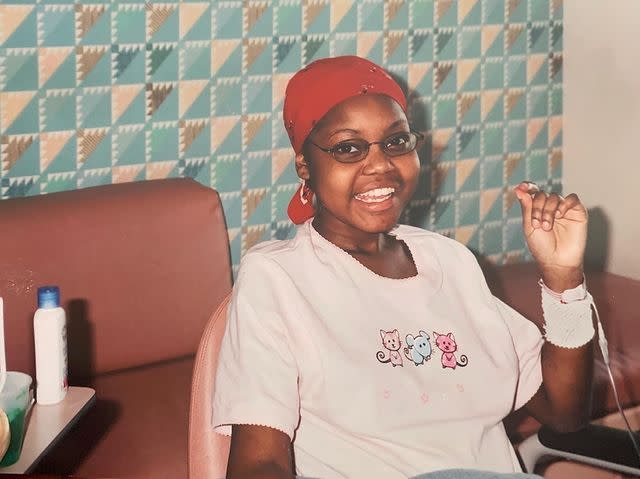What It's Like To Live Without A Colon Or Rectum

My name is Renee Welch, and I am 34 years old living with Crohn's disease. I am from Toronto, Canada, and I am a content creator for a financial institution.
I’ve had Crohn’s disease and ulcerative colitis for 26 years. It started with pain in my stomach that included cramping, diarrhea, and vomiting when I was 8 years old. My family doctor gave me some Zantac (medication for acid reflux) hoping the pain would subside, but it only got worse. Because I couldn’t keep anything down, I started losing weight due to malnutrition. I also developed anemia (low levels of red blood cells) and struggled with anal fistulas, a painful infection in the anus due to GI tract inflammation.
My family doctor referred me to a children’s hospital in Toronto, where they did, x-rays, CT scans, and MRIs to determine why I was getting so sick. I was officially diagnosed with Crohn’s about 10 months after the onset of my symptoms. I was only 9 years old.
As a teen, I also developed hidradenitis suppurativa (an autoimmune disease that causes large, painful bumps to form underneath the skin). Being a teenager, you struggle to figure out who you are, and to be struggling with multiple autoimmune diseases only makes life more challenging. Things were especially tough because my primary disease—Crohn’s—was invisible. On the outside, I looked fine, but a lot of the time I couldn’t even get out of bed. I missed a lot of school because I was sick and was held back a grade due to all my absentees.
From there, things only got tougher.
In 2003, when I was 17, I had a resectioning surgery to remove a small part of my colon that was damaged due to my Crohn’s. After the procedure, I had to stay in the hospital for 30 days. ?At the time, SARS was spreading around the world. Since I’m immunocompromised and there was a global pandemic, the only people able to come to visit me were my mom and dad. ?Fast forward 16 years to January 2019 and I was in need of yet another surgery.

This time, I underwent a colostomy and proctectomy. During the operations, my doctors removed my colon and rectum and created an opening from my ileum, the lowest part of the small intestine, called a stoma. Instead of defecating in the bathroom, an ostomy bag connects to the stoma and collects waste. I empty the bag once it’s full and can wear it with anything. I had the two operations because I had severe, irreversible scar tissue in my colon due to my condition and my previous surgery. I was developing a life-threatening bacterial infection, so I decided, with the help of my gastroenterologist, to have the operation.
The surgery was supposed to take 6 hours, but due to the severity of my colon issues, it took 10. It then took me a year to fully recover. What they don’t tell you about surgery is that healing is not progressive. I would have days when I would be doing well, and others when I felt horrible, dealing with extreme fatigue and pain. Everything was an adjustment. I had to learn to drink more water and add more salt to my diet because after a colostomy, you lose more fluid and salt because your colon isn’t there to absorb fluids. I also experienced hair loss due to malnutrition, and that has been the biggest challenge that I wasn’t prepared for.
I had to learn a lot post-op on my own because there aren’t many ostomy nurses in my area. For example, transitioning back was a big adjustment. I had to have a change of clothes in my car, in case I got an ostomy bag leak, which has happened. Things aren’t always easy, and I am not always okay. But it’s incredible to see how much the body heals without an organ, and how quickly time passes when you aren’t focusing on surviving and just living.
Looking to the future
I have fears about my future. Some days I look at my ostomy bag and feel ugly. I worry that I’ll have a flare and get super sick again. Learning to accept my ostomy is something I am still working on. But being open and sharing my story helps. I know that some people don’t understand it or may think it’s gross, but I can’t change their opinion and I’m at peace with that.
Since my surgery, I have been medication-free, but I still check in with my gastroenterologist. I am very conscious about what I put in my body, so I stay away from any foods that may trigger flare-ups, like high-fiber foods and sugar, which creates tons of inflammation for me.
I have a strong support system in my family, friends, and faith community that made everything so much better. Going through such a life-changing surgery requires a village, but I have no regrets. I was able to get a second chance at life, so I am making sure I make the most of it.
You Might Also Like